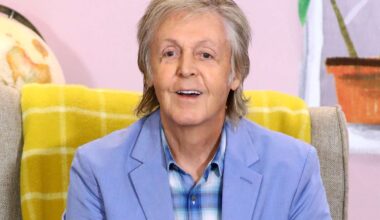If there are angels, Joan learned how to sing like they surely do… I feel such joy and privilege to have lived through their songs, their civil rights work. She didn’t just sing that night—she summoned history with every breath. As her fingers touched the strings, it felt like time folded in on itself. You could almost see shadows of marches, candlelight vigils, and young faces lost too soon. Some in the audience wiped tears they hadn’t expected to cry after all these years. Even the President seemed to lean in, as if afraid to miss a single word. And just before the final chord faded, something happened on that stage that no camera could truly capture—something between silence and eternity, where the voice of one woman carried the memory of a generation
In December 1994, the Kennedy Center Honors paid tribute to one of the most quietly revolutionary voices in American music: Pete Seeger. But amid the orchestras and ovations, it was Joan Baez—his longtime friend, protégé, and fellow activist—who delivered the most haunting moment of the night. Standing alone on that grand stage, guitar in hand, she performed “Where Have All the Flowers Gone,” and with each verse, the air grew still.

The song, written by Pete Seeger in 1955 and later expanded by Joe Hickerson, is a gentle folk lament that traces the cycle of youth, war, and loss. It became an anthem of the peace movement, and Baez’s connection to its message was deeply personal. Her voice, rich with decades of protest and prayer, didn’t just sing Seeger’s words—it embodied them. She didn’t need embellishment. With a single spotlight and her quiet strength, she let the sorrow of the lyrics speak for itself.
As she asked “Where have all the young men gone?”, her voice trembled with both clarity and grief. The performance was not simply a celebration of Seeger’s life—it was a continuation of his mission. For Baez, this was more than music. It was a reckoning. A reminder that the questions Seeger posed remain unanswered, decades later.

Joan Baez and Pete Seeger had stood side by side during some of America’s most turbulent moments. From the March on Washington to countless anti-war rallies, their music served as a beacon for conscience and change. That night at the Kennedy Center, Baez wasn’t just honoring a fellow musician—she was passing along his legacy.
The silence that followed her final chord was not from a lack of applause—it was reverence. A moment of shared breath. A collective reflection on how far we’ve come, and how far we have yet to go. More than just a performance, it was a call to remember. To reflect. And to act. Joan Baez didn’t just sing “Where Have All the Flowers Gone.” She asked all of us to answer it.
WATCH BELOW:





